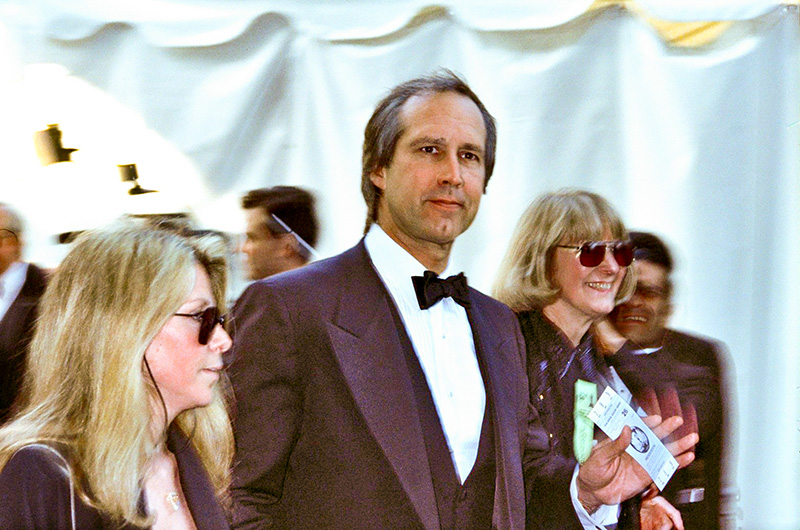TV Review: ‘Peaky Blinders’ Season 5 on Netflix
Peaky Blinders' returns to Netflix with its signature poise, power, and unfettered style

A brilliant TV series is like a tightrope walker. As it paces the line, season after season, not only must it be sure-footed, there must be clever steps and breathtaking stunts. But the longer the walk, the greater the chance of tired legs, stumbling feet, and even overconfidence. Add the high winds of sudden and immense popularity and the ensuing wobble may be fatal. Take BBC’s Sherlock, a revelation in original entertainment, now twisting in the wind after two seasons in which its fabulous creators lost their miraculous balance.
Flash to Season Five of Peaky Blinders — that most stylish and gripping of crime-family stories — and the pressure is on. A reimagined tale of the gangsters who plagued Birmingham, England in the early 20th century, past seasons have delivered a throbbing storyline of criminal intrigues, family tensions, and riveting insights into the mysterious mind of Thomas Shelby, the man at the helm of the enterprise.
But with the first clang of Nick Cave’s iconic theme song, “Red Right Hand,” it was obvious that Peaky Blinders (★★★★★) was never going to be your typical period piece. Set to an ingeniously intrusive punkish, indie, folk, and metal score and shot with an unfettered eye for enduring imagery, everything that’s old feels new again. It doesn’t just see hardscrabble Birmingham in a new way, it re-envisions television drama.
Even with this wildly original, high-octane agenda and its explosive popularity, Peaky Blinders has walked the high-wire with unstoppable verve and energy. It wasn’t until last season, with a somewhat fiddly plot and Adrian Brody’s wholly convincing Luca Changretta as its central menace, that a foot seemed to slip. Thankfully, all has been recalibrated with a fifth season that returns with the Peaky Blinders‘ signature poise, power, and unfettered style.
There will be no spoilers here, but suffice to say the series returns to its roots with a finely focused narrative, a tightly-sprung dramatic arc, and even the return of its cynical wit. This season is heavily spiced with the news of its day and if Thomas has donned a mantle of respectability with his OBE and status as a Member of Parliament, his dance with Britain’s establishment is soon complicated by dangerous politics and ever-opportunistic rival gangs. And as the family intrigue also roils, there is the sense that every member is playing their own chess game for their own ends. If we can’t always see every move, the brilliance of Steven Knight’s writing ensures that clarity always arrives on time.
Along with these familiar tensions, Knight surfaces a new and interesting dimension on Thomas’ ability to manage his inner demons. When Polly’s son Michael angrily tells him he should see one of those new doctors who can talk “the shit out of your skull,” he’s not far off the mark. It’s a theme with the pull of Shakespearean tragedy: Thomas senses that someone is coming for his crown — be it outsider, insider, or his own struggling self.

Subtly infusing the whole is director Anthony Byrne’s pleasing note of noir, a cinematic sensibility that lifts this series into a genre of its own. One of many such small moments is the artful shadowing of Aberama Gold’s face in a smuggler’s cavern — this is atmosphere and storytelling. Also refound is Peaky Blinders‘ unique lens on its core violence, captured with a vision that is memorably unsettling. There are scenes eloquent in their single, slow-motion imagery and others that find mastery in their pace and editing. None are gratuitous.
Of course, the turbulent soul of the show is inextricably bound to Cillian Murphy’s Thomas, the Romany crime boss and antihero at the center of the drama. Capturing this man in all his thousand-yard-stare complexity, Murphy remains the very definition of mesmerizing. As Byrne’s camera courses the angular planes of his features, the final resting place — the endless draw — must always be his steel-blue eyes. Whether blank and impenetrable or as open as windows, with Murphy they are the place we want to be.
As Polly Gray, the canny, often unreadable matriarch, Helen McCrory has one of her best seasons, savoring Polly’s careful choice of word, her voice delicious in its precision. McCrory tells us that no one can ever really know this woman and that the best — or the worst — of her is yet to come. Her Polly is the face of complex, unstoppable female energy and integrity.
Returning to his feral state is Paul Anderson’s Arthur Shelby, released from domesticity by ambitious wife Linda (played with sometimes-convincing fire by Kate Phillips). If Arthur often entertains with his twitching, unhinged thuggery, this season revisits the terrifying chaos wrought by hands that “belong to Satan.” Anderson’s portrait of this rottweiler of a man, willingly at Thomas’ heel until the red mist descends, is untouchable.
Another standout of the season is a fabulously restyled Aberama Gold, who has traded his woodsman’s locks for a dashing villainy that will make more than a few pulses quicken. More to the point, Aidan Gillen is one of those top-flight actors who for reasons known only to the universe has not hit his own big time. Keeping his Gold subtle and oh-so-quietly charismatic, he brings a sense of theater that makes this ensemble one of the best since The Sopranos rebooted the idea.
Coming into new focus is Finn Cole’s Michael, son of Polly, exuding a convincingl unappealing ambition, while new arrival Anya Taylor-Joy as his American wife Gina is appropriately grating, her large, almond eyes suggesting an alien New World glamor. Peaky Blinders has always acknowledged its female characters and Thomas’ current wife, Lizzie, is another coming to the fore this season. An elegant Natasha O’Keefe nicely captures Lizzie’s less-than-likeable edge as she tries to reconcile her role as afterthought in Thomas’ life. Sophie Rundle continues to convince as Shelby sister Ada, even if her connection to Colonel Ben Younger (played with appealing nuance by Kingsley Ben-Adir) feels rather contrived. Another rare misstep is the obviously prosthesis-laden Neil Maskell trying too hard to carry off Winston Churchill in a scene that adds little. Still, these are but trifles in a series that continues to tell its dark and fabulous tale in the highest villainous style.
Peaky Blinders‘ fifth season is available to stream on Netflix starting Friday, Oct. 4. Seasons 1 to 4 are available now. Visit www.netflix.com.
Support Metro Weekly’s Journalism
These are challenging times for news organizations. And yet it’s crucial we stay active and provide vital resources and information to both our local readers and the world. So won’t you please take a moment and consider supporting Metro Weekly with a membership? For as little as $5 a month, you can help ensure Metro Weekly magazine and MetroWeekly.com remain free, viable resources as we provide the best, most diverse, culturally-resonant LGBTQ coverage in both the D.C. region and around the world. Memberships come with exclusive perks and discounts, your own personal digital delivery of each week’s magazine (and an archive), access to our Member's Lounge when it launches this fall, and exclusive members-only items like Metro Weekly Membership Mugs and Tote Bags! Check out all our membership levels here and please join us today!




























You must be logged in to post a comment.